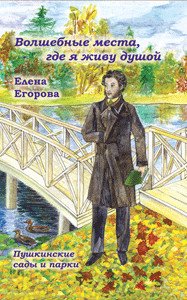Поэтический мир прерафаэлитов - Теннисон Альфред (библиотека книг .txt) 📗
Тут можно читать бесплатно Поэтический мир прерафаэлитов - Теннисон Альфред (библиотека книг .txt) 📗. Жанр: Поэзия / Искусство и Дизайн. Так же Вы можете читать полную версию (весь текст) онлайн без регистрации и SMS на сайте online-knigi.org (Online knigi) или прочесть краткое содержание, предисловие (аннотацию), описание и ознакомиться с отзывами (комментариями) о произведении.
III
Unlike are we, unlike, O princely Heart!
Unlike our uses and our destinies.
Our ministering two angels look surprise
On one another, as they strike athwart
Their wings in passing. Thou, bethink thee, art
A guest for queens to social pageantries,
With gages from a hundred brighter eyes
Than tears even can make mine, to play thy part
Of chief musician. What hast thou to do
With looking from the lattice-lights at me,
A poor, tired, wandering singer, singing through
The dark, and leaning up a cypress tree?
The chrism is on thine head, — on mine, the dew, —
And Death must dig the level where these agree.
XIV
If thou must love me, let it be for nought
Except for love’s sake only. Do not say,
‘I love her for her smile — her look — her way
Of speaking gently — for a trick of thought
That falls in well with mine, and certes brought
A sense of pleasant ease on such a day’ —
For these things in themselves, Beloved, may
Be changed, or change for thee, — and love, so wrought,
May be unwrought so. Neither love me for
Thine own dear pity’s wiping my cheeks dry, —
A creature might forget to weep, who bore
Thy comfort long, and lose thy love thereby!
But love me for love’s sake, that evermore
Thou mayst love on, through love’s eternity.
XXI
Say over again, and yet once over again,
That thou dost love me. Though the word repeated
Should seem ‘a cuckoo song,’ as thou dost treat it,
Remember, never to the hill or plain,
Valley and wood, without her cuckoo-strain
Comes the fresh Spring in all her green completed.
Beloved, I, amid the darkness greeted
By a doubtful spirit-voice, in that doubt’s pain,
Cry, ‘Speak once more — thou lovest!’ Who can fear
Too many stars, though each in heaven shall roll,
Too many flowers, though each shall crown the year?
Say thou dost love me, love me, love me — toll
The silver iterance! — only minding, Dear,
To love me also in silence with thy soul.
XXIV
Let the world’s sharpness, like a clasping knife,
Shut in upon itself and do no harm
In this close hand of Love, now soft and warm,
And let us hear no sound of human strife
After the click of the shutting. Life to life —
I lean upon thee, Dear, without alarm,
And feel as safe as guarded by a charm
Against the stab of worldlings, who if rife
Are weak to injure. Very whitely still
The lilies of our lives may reassure
Their blossoms from their roots, accessible
Alone to heavenly dews that drop not fewer,
Growing straight, out of man’s reach, on the hill.
God only, who made us rich, can make us poor.
XXVI
I lived with visions for my company
Instead of men and women, years ago,
And found them gentle mates, nor thought to know
A sweeter music than they played to me.
But soon their trailing purple was not free
Of this world’s dust, their lutes did silent grow,
And I myself grew faint and blind below
Their vanishing eyes. Then thou didst come — to be,
Beloved, what they seemed. Their shining fronts,
Their songs, their splendours (better, yet the same,
As river-water hallowed into fonts),
Met in thee, and from out thee overcame
My soul with satisfaction of all wants:
Because God’s gifts put man’s best dreams to shame.
XLIII
How do I love thee? Let me count the ways.
I love thee to the depth and breadth and height
My soul can reach, when feeling out of sight
For the ends of Being and ideal Grace.
I love thee to the level of every day’s
Most quiet need, by sun and candle-light.
I love thee freely, as men strive for Right;
I love thee purely, as they turn from Praise.
I love thee with the passion put to use
In my old griefs, and with my childhood’s faith.
I love thee with a love I seemed to lose
With my lost saints — I love thee with the breath,
Smiles, tears, of all my life! — and, if God choose,
I shall but love thee better after death.

Sir Edward Coley Burne-Jones THE LOVE SONG Oil on canvas. 1868–1877 The Metropolitan Museum of Art, New York City
Эдуард Коули Бёрн-Джонс ЛЮБОВНАЯ ПЕСНЬ Холст, масло. 1868–1877 Музей Метрополитен, Нью-Йорк
ИЗ ЦИКЛА «СОНЕТЫ С ПОРТУГАЛЬСКОГО»
I
Я вспоминала строки Феокрита
О череде блаженных, щедрых лет,
Что смертным в дар несли тепло и свет,
И юных вёсен их венчала свита, —
И, мыслями печальными повита,
Сквозь слезы памяти глядела вслед
Скользнувшей веренице тусклых лет,
Чьи тени мрачным холодом Коцита
Мне в душу веяли — и стыла кровь;
Как вдруг незримая чужая Сила
Меня, рванув, за волосы схватила
И стала гнуть: «Смирись, не прекословь!»
«Ты — Смерть?» — изнемогая, я спросила.
Но Голос отвечал: «Не Смерть — Любовь».
III
Неровня мы, возлюбленный мой брат!
Столь многим суждено нам различаться —
Представь, как наши ангелы дичатся
Друг друга, и крылами бьют не в лад.
Ты — гость желанный царственных палат,
Где песнь твою встречает плеск оваций
И блеск очей, с какими не сравняться
Моим, когда в них слезы заблестят…
Тебе ли из окна следить за мною,
Бродяжкой бедной, что в полночный час
Поет про мир, объятый мглой ночною,
К ночному кипарису прислонясь?
Лоб твой помазан миром, мой — росою,
И смерть одна лишь поравняет нас.



